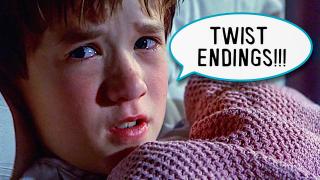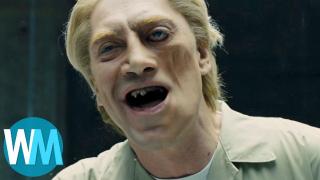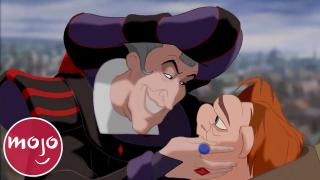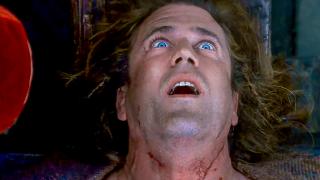Is Godzilla a Hero or Villain?
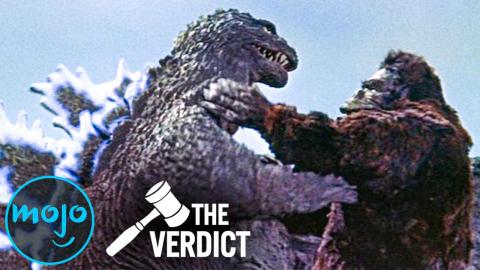
Changing Allegiances
Top 10 Game-Changing Hollywood Movies
When Toho first unleashed Godzilla upon the world, he was portrayed as a creature of senseless destruction—a villain. To understand Godzilla’s early years, you have to consider Japan’s then-recent history; namely, the nuclear devastation they experienced during WWII. And so the first Godzilla film, released in 1954, introduced the massive reptile as being born of American nuclear tests. He was the fear, anxiety and fallout of nuclear weapons personified. There’s a trend in pop culture, however, in which villains who find lasting popularity risk being recast as an ally or antihero. Sure enough, in 1964’s “Ghidorah, the Three-Headed Monster” (the fifth film in the franchise) Godzilla became an unlikely savior. Since then, the films have more often than not pitted him against a variety of worse kaiju. Against this slew of mutual threats, Godzilla and humankind found themselves allies. The hero-worship of Godzilla began in earnest. He became the people’s kaiju.
Motives
Top 10 Film Villains Who Had Justifiable Motives
Godzilla has saved the day more than once. But what drives him? Has he developed a relationship with humanity and taken it upon himself to serve as our titan protector? Or is he simply committed to keeping other kaiju down? Revisiting Godzilla’s actions, it’s incredibly difficult to discern whether he bristles at kaiju attacking humans or whether he simply takes issue with any show of force from another kaiju. As with any long-running franchise, the character’s motivations have evolved over time. Surveying his career after 1964, however, a relatively consistent pattern emerges: he does not attack individual humans unless provoked, but he also does not go out of his way to protect them. This leads to the conclusion that Godzilla’s motivations are not altruistic but rather self-serving. Godzilla appears to be single-mindedly focused on defeating those he views as being a threat to his status as earth’s alpha being.
Collateral Damage
Sometimes, doing the right thing is destructive. Just ask Superman and his fellow heroes. How many buildings have they totalled in the name of the greater good? While a superhero throwdown is invariably messy, the good guys consistently make compromises in battle to minimize loss of life. In contrast, Godzilla seems wholly focused on the task at hand—property damage and casualties be damned. In any kaiju brawl, the blame is hard to place. When two giant creatures are pushing each other around, who destroyed which building doesn’t really matter. Everything fades together to simply become their environment. Looking at the destruction caused by these battles, however, once again underlines Godzilla’s priorities. There is no effort on his part to minimize collateral damage. Whatever the battleground, everything around him becomes a tool in service to his quest for dominance over his foe.
The Ends vs the Means
Top 10 Iconic Hero/Villain Duets
Godzilla’s bill for collateral damage is high, but it pales in comparison to the potential destruction caused by other kaiju should he not intervene. Sure, his throwdown with Ghidorah in their 2019 battle destroyed a massive portion of Boston, but there’s nothing to suggest that Ghidorah would have stopped there. After awakening the other titans, this three-headed kaiju could have—and likely would have—brought about the end of civilization as we know it. Godzilla's methods leave much to be desired. But at the end of the day, his actions avert disaster of a larger scale. It’s easy to lay 50% of the destruction at his feet when he’s using that atomic breath and throwing MUTOs around. But arguably everything that he destroys would have been destroyed by the other kaiju. His acts of destruction serve to mitigate greater, potentially limitless destruction. There’s actually a term for this concept, and it’s called the “Godzilla Threshold”.
The Enemy of My Enemy …
Top 10 Times the Hero Slept with the Enemy
They say that the enemy of your enemy is your friend. But does that make them a good guy? The world of comic books is rife with examples of sworn enemies calling a truce in the face of a mutual threat —Batman and Joker, Superman and Lex Luthor. When such alliances are formed, this is an opportunity to find common ground. Even when the parties go their separate ways (and maybe even return to their combative ways), there’s a newfound understanding—if not respect. The thing is, Godzilla’s apparent truce with humanity is never negotiated. There are no terms. In the attacking kaiju, Godzilla and humankind find a common enemy. Godzilla’s efforts to destroy the kaiju benefit humanity, and when Godzilla is in peril, humanity may even go out of their way to lend him support. Godzilla, for his part, however, never appears to make any compromises in the name of humanity. The benefits humans enjoy are a byproduct of his goals, not something that factors into his navigation of the conflict.
The Surprise Witness: Public Perception
Top 10 Movies You Can't Watch in Public
Like beauty, "good guy" status is largely in the eye of the beholder. Public perception is arguably more powerful than the actions upon which it’s based. For better or worse, Godzilla’s status as a “good guy” needs to take into account how he’s been represented both in the world of the films and by cinemagoers. Looking at the history of the character, he has inspired both fear and hope. The franchise began with Godzilla being feared and maligned; but, as occurs in most of its individual installments, at the end of the day, Godzilla has people cheering for him. He might not show up for the parade, but we throw it anyway.
The Verdict
Top 10 Movies Where the Villain Kills the Hero
Humanity may celebrate him, but Godzilla is NOT a “good guy”. Here’s the thing though… he’s not the bad guy either. Godzilla is quite simply a force of nature. He is no more a bad guy than a hurricane or tornado. He's destructive and causes loss of life, but he's just playing his part in a larger system. In the Monsterverse films, his role as an agent of balance has been made more explicit than ever. When you think of the quintessential "good guy" in popular media, there is typically an element of self-sacrifice in the name of others. There is a commitment to a larger cause and an attachment to the concept of right and wrong. Godzilla doesn’t check any of these boxes. He is a lion protecting his place as the leader of his pride. The effects Godzilla has upon humanity (good or bad) don’t matter to him. So … why do we see him the way we do? We’re a narrative society. Stories help us make sense of the world and have dating back thousands of years. The hero is perhaps the oldest and most easily identifiable figure, and so when a character like Godzilla saves us, we naturally associate him with the archetype of the good guy. But what he represents is something larger. Godzilla is more akin to a god than anything else. And so our attraction to Godzilla as a figure speaks to something primal—a need to project intention onto the chaos of the natural world, like we did with the Greek and Norse gods of old. Godzilla is an inherently dangerous entity that, like the elements, we hope will act in our favor—and we celebrate whenever he does.


